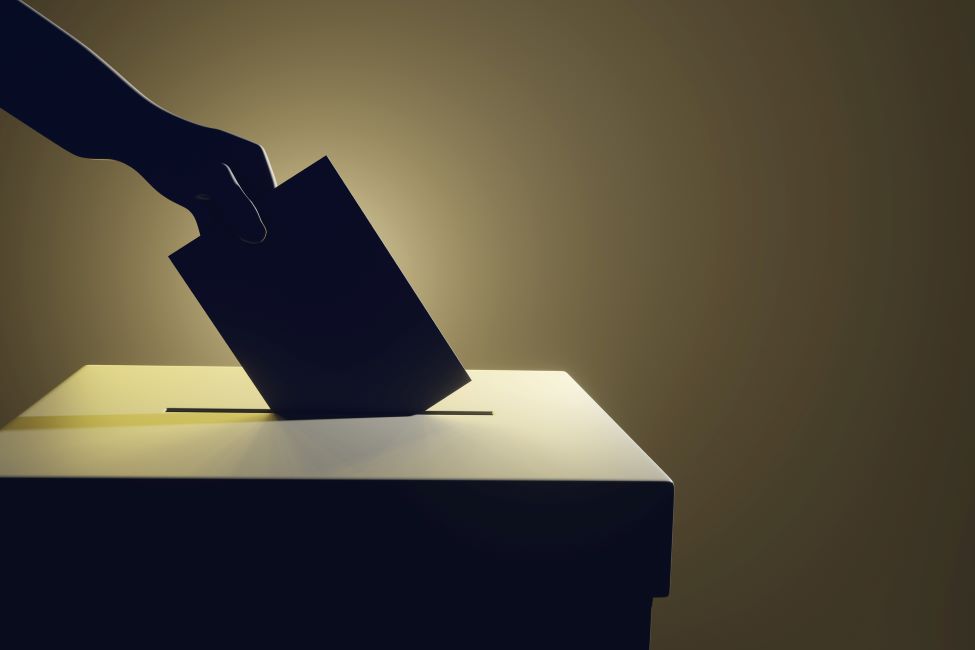FAU/Mainstreet Poll of Battleground States Shows Divide on Top Issues

Voters share their thoughts on the 2024 election
A new poll of voters in Pennsylvania, Michigan and Wisconsin, often considered battleground states, conducted by FAU Political Communication and Public Opinion Research Lab (PolCom Lab) and Mainstreet Research, highlights the partisan divide on important issues and on the legal case against former U.S. President Donald Trump.
In all three battleground states, the Presidential race is too close to predict a winner with the difference well within the margin of error (± 3%). U.S. President Biden won in these three battleground states by thin margins in the 2020 presidential election (Michigan 2.8%; Pennsylvania 1.2%; and Wisconsin with less than 1%).
The Michigan survey results show that Biden and Trump are tied at 45% among voters, and Biden wins by 1% among likely voters (Biden 47% and Trump 46%). However, Biden is behind Trump by 2% in Pennsylvania among all voters (Biden 43% and Trump 45%) and among likely voters (Biden 45% and Trump 47%). The survey results in Wisconsin also show the candidates are neck and neck. Biden is 2% ahead among all voters (Biden 40% and Trump 38%), but he is 1% behind among likely voters (Biden 40% and Trump 41%).
“Neither side has a meaningful advantage in any of the three states at this time,” said Dukhong Kim, Ph.D., associate professor of political science at FAU.
Battleground States Fixated on Economy While Culture War Still Rages
“These battleground states continue to prioritize economic concerns over social issues like immigration and abortion,” said Luzmarina Garcia, Ph.D., assistant professor of political science at FAU. “While the economy is the top matter for voters across party lines, we see a stark split on the second-tier priorities.”
According to the poll, 30% of Trump voters rank immigration as their second-most crucial issue compared to only 5.5% of Biden voters. Conversely, a quarter of Biden supporters cite abortion access as highly important, versus just 5% who backed Trump. The poll indicates a gender gap as well, with abortion mattering more to women than men. Economic anxieties appear to impact both genders equally.
Trump’s Criminal Behavior Unimportant to MAGA Voters
“Trump’s legal jeopardy may be rallying part of his base,” said Kevin Wagner, Ph.D., co-director of FAU’s PolCom Lab and professor of political science. “Most of his supporters don’t believe he’s guilty, while Biden voters overwhelmingly think he committed crimes.”
However, Wagner observed that “18% of Republicans in our poll believe Trump is guilty. If they stay home, it could matter in November especially in close states like these.”
Among the overall sample, 49% say Trump is guilty of wrongdoing. This view is more prevalent among Black voters (69%), Hispanics (59%), and white voters with college degrees (50%) than for white voters without a college degree (40%), which is the only group where there is a plurality who do not believe in Trump’s guilt. The belief in guilt was also higher for women (54%) than for men (44%).
Age Gap Emerges on Perception of Trump’s Crimes
Younger adults are less certain about his culpability. Only 38% of voters under 35 thought Trump was guilty, while 33% held that he should not have been found guilty, and 30% are unsure.
“The lack of concern from young people about financial crimes against the presidency is quite interesting,” said Garcia. “It may stem from an underdeveloped understanding of how critical those laws are to preserving democracy.”
The poll was conducted between Thursday, May 30 to Friday, May 31, among a sample of 797 adults, 18 years or older, living in the battleground states of Pennsylvania, Michigan and Wisconsin. The survey was conducted IVR and an online panel to complete the survey. It is intended to represent the voting population among the states sampled. Since the poll was partially completed online, a margin of error cannot be assigned to the poll, but a poll of this size would have a margin of error of +/- 3.5% at the 95% confidence level. Margins of error are higher in each subsample.
-FAU-









